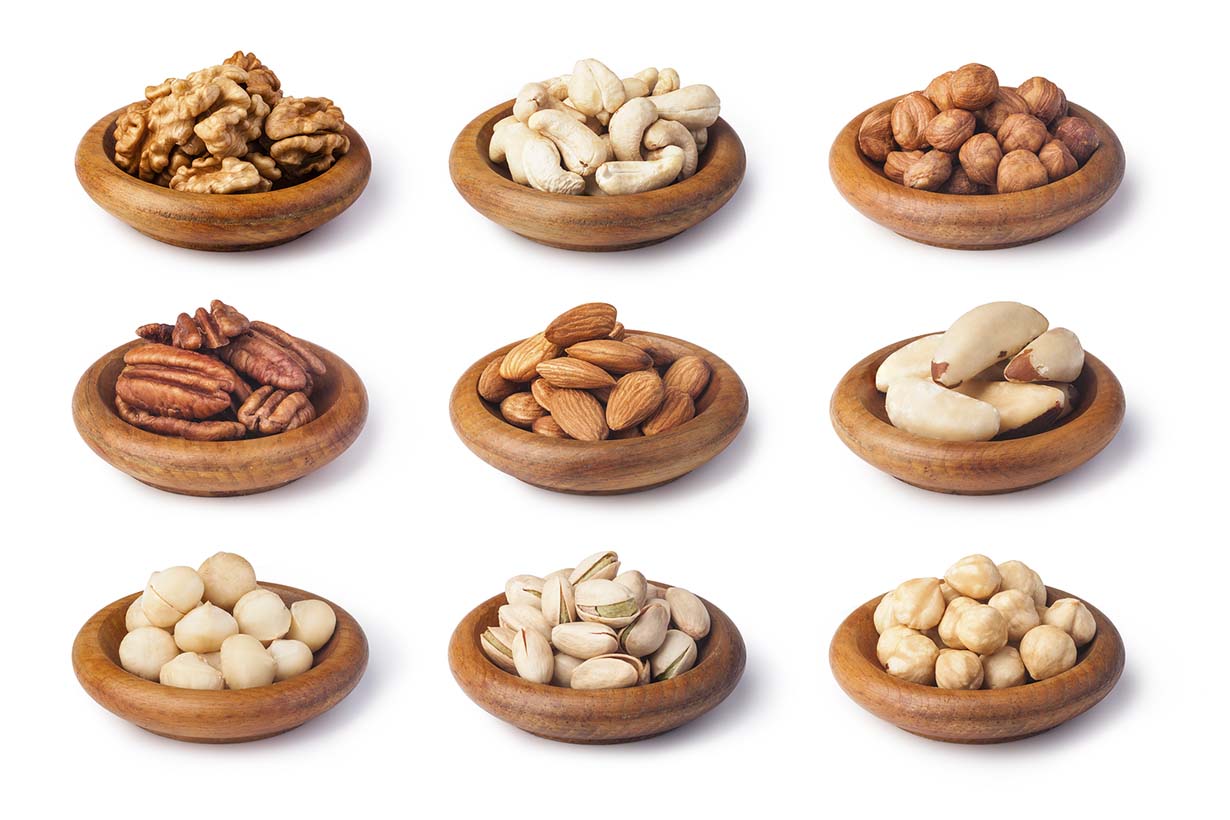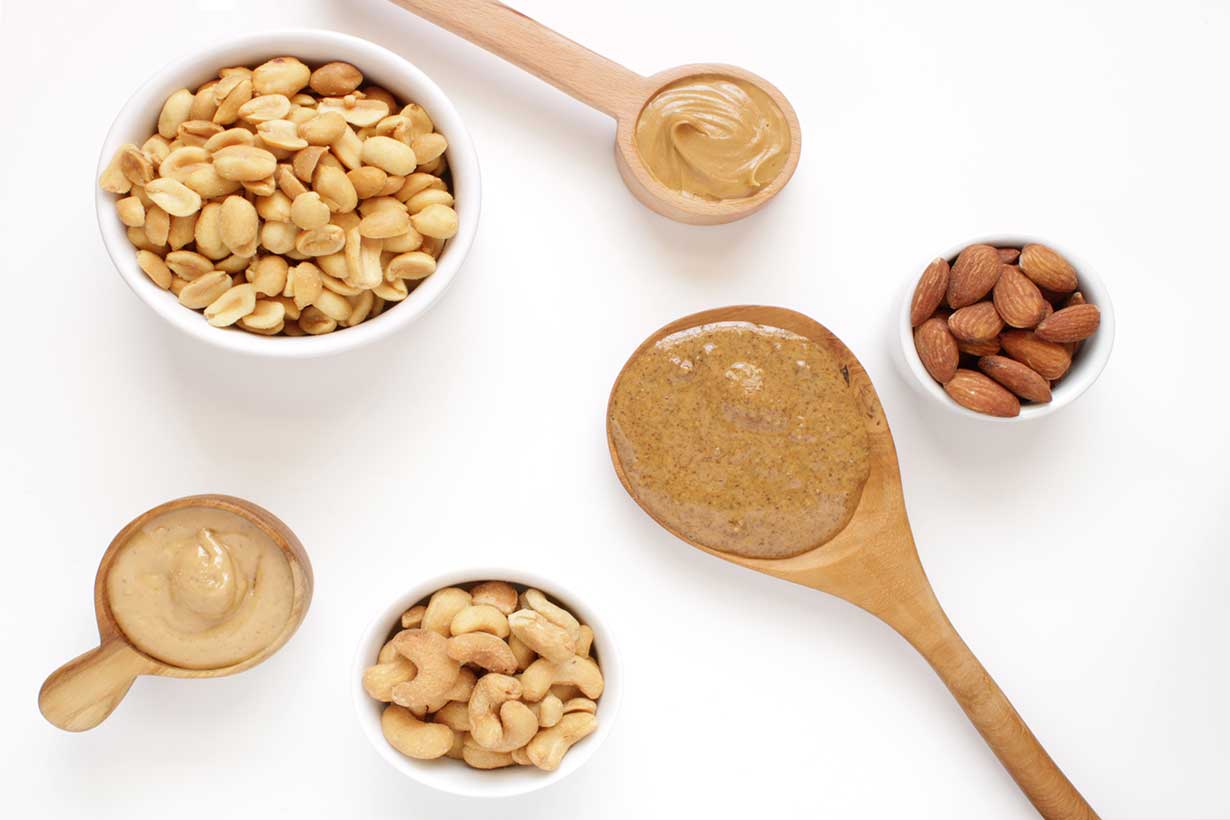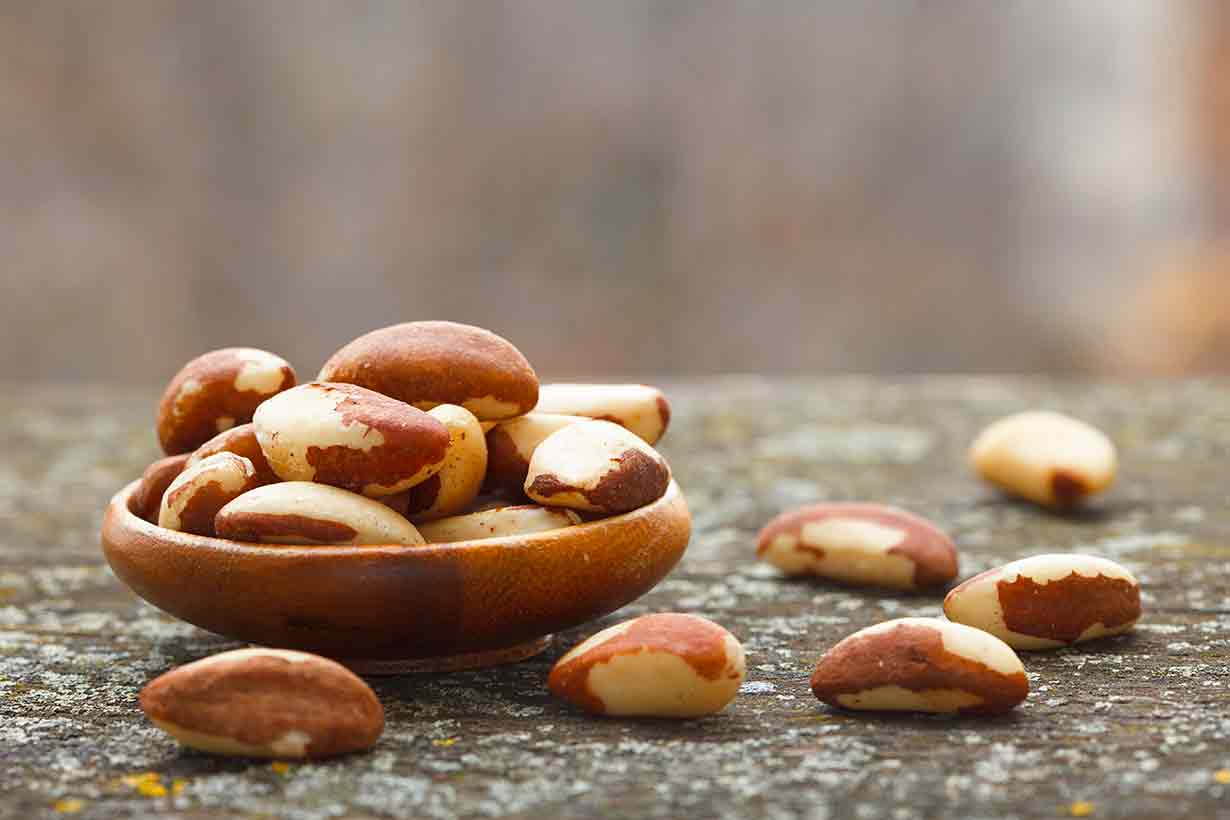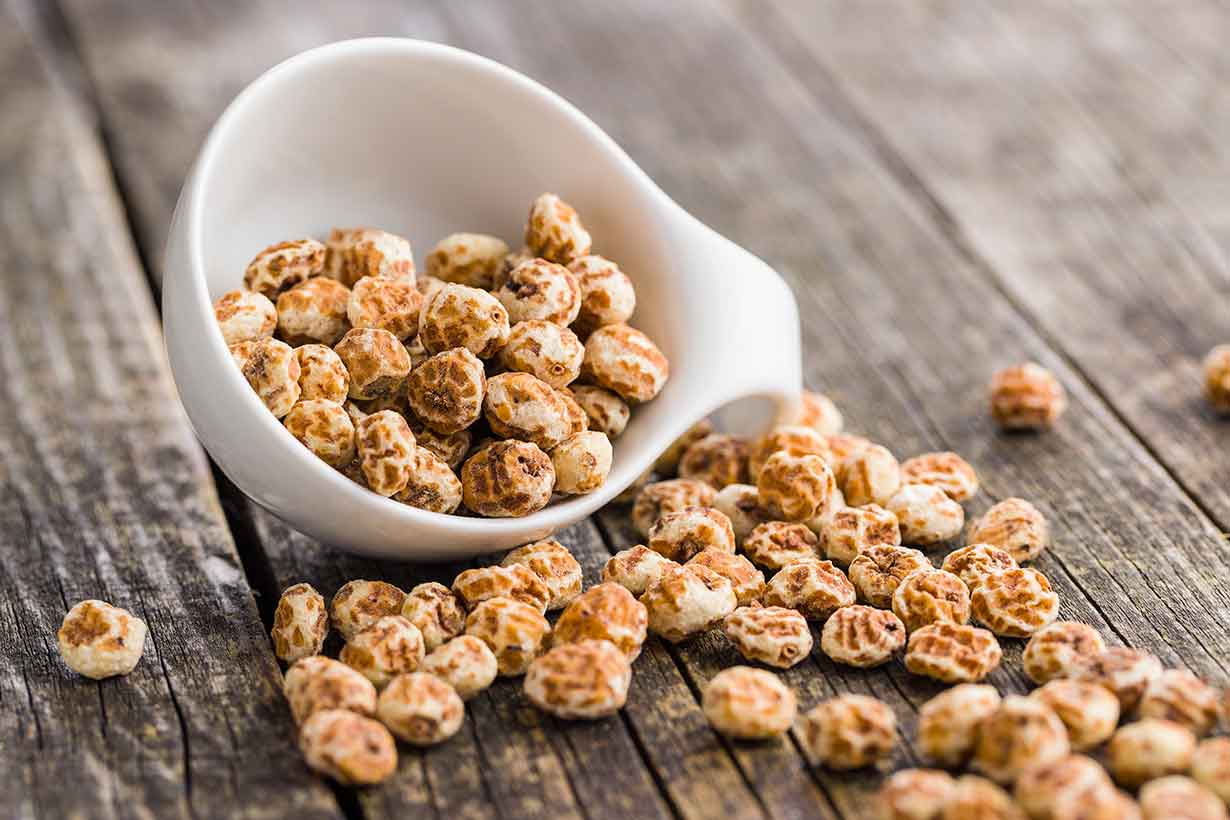Disclosure: This post may contain affiliate links. This means if you click on one of these links and purchase an item, we will receive a small commission at no extra cost to you. All opinions are our own.
Black walnuts are a nutrient-rich nut variant that is distinct from regular walnuts.
This article provides a comprehensive guide to black walnuts, their nutritional properties, and their potential health benefits.
What Are Black Walnuts?
Black walnuts, known scientifically as Juglans nigra, are nuts native to North America (1).
Although they share the ‘walnut’ name, black walnuts stand apart from English walnuts, which are commonly known as walnuts.
Beyond their slightly divergent appearance, black walnuts boast distinct taste characteristics. Furthermore, differences exist in the nutritional profile of the two.
Despite not enjoying the same popularity as English walnuts, black walnuts are edible, and they offer nutritional benefits.
Taste and Appearance
Black walnuts offer an earthy, robust taste that distinguishes them from the milder flavor of regular walnuts.
Additionally, they carry subtle bitter notes, a characteristic potentially linked to their higher potassium and phosphorus content, as suggested by research (2).
Generally speaking, people tend to prefer the taste of regular ‘English’ walnuts, contributing to the lesser prevalence of black walnuts.
The black walnut’s shell, notably darker than its English walnut counterpart, is also slightly smaller. A visual comparison highlighting these differences is presented in the image below:
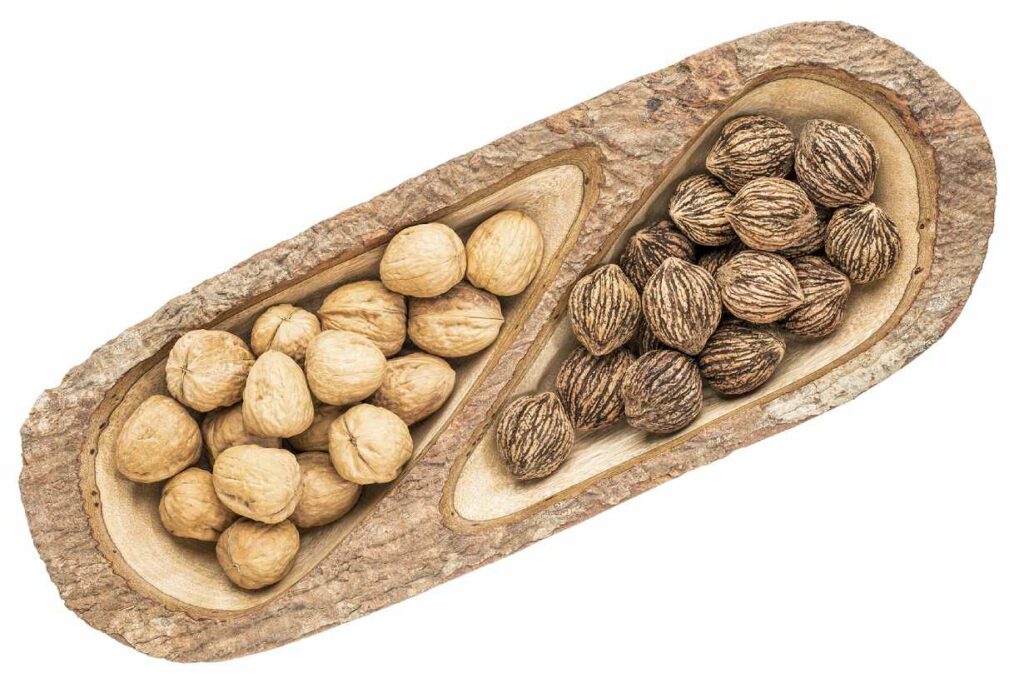
As for the nut kernels themselves, black walnuts and English walnuts look relatively similar in appearance.
Nutritional Profile of Black Walnuts
The subsequent tables present the complete nutritional profile of black walnuts per ounce (28.35-gram) serving.
The tables include fundamental nutritional information along with the vitamin and mineral composition. Additionally, we will analyze how the basic nutritional values of black walnuts compare to those of English walnuts.
The nutritional data originates from the USDA’s FoodData Central database, and daily values have been computed in accordance with the FDA’s recommended daily values (3, 4).
| Name | Amount | % Daily Value |
|---|---|---|
| Calories | 175 kcal | |
| Carbohydrates | 2.72 g | 1.0% |
| Fiber | 1.93 g | 6.9% |
| Sugars | 0.31 g | |
| Fat | 16.8 g | 21.5% |
| Saturated | 0.99 g | 5.0% |
| Monounsaturated | 4.37 g | |
| Polyunsaturated | 10.3 g | |
| Omega-3 | 0.76 g | |
| Omega-6 | 9.58 g | |
| Protein | 6.83 g | 13.7% |
| Cholesterol | 0 mg | 0% |
| Water | 1.29 g |
As evident from the table, black walnuts boast a high fat content, offer a substantial amount of protein, and they are relatively low in carbohydrates. Notably, the majority of the carbohydrates they provide are in the form of fiber.
Vitamins
| Vitamin | Amount | % Daily Value |
|---|---|---|
| Choline | 9.1 mg | 1.7% |
| Folate, DFE | 8.79 mcg | 2.2% |
| Vitamin A, RAE | 0.567 mcg | <0.1% |
| Vitamin B1 (thiamin) | 0.016 mg | 1.3% |
| Vitamin B2 (riboflavin) | 0.037 mg | 2.8% |
| Vitamin B3 (niacin) | 0.133 mg | 0.8% |
| Vitamin B5 (pantothenic acid) | 0.471 mg | 9.4% |
| Vitamin B6 | 0.165 mg | 9.7% |
| Vitamin B12 | 0 mcg | 0% |
| Vitamin C | 0.482 mg | 0.4% |
| Vitamin D | 0 mcg | 0.5% |
| Vitamin E | 0.59 mg | 3.9% |
| Vitamin K | 0.765 mcg | 0.6% |
Black walnuts are a good source of vitamin B5 and B6, and they are also high in vitamin E.
Minerals
| Mineral | Amount | % Daily Value |
|---|---|---|
| Calcium | 17.3 mg | 1.3% |
| Copper | 0.386 mg | 42.9% |
| Iron | 0.885 mg | 4.9% |
| Magnesium | 57 mg | 13.6% |
| Manganese | 1.11 mg | 48.2% |
| Phosphorus | 145 mg | 11.6% |
| Potassium | 148 mg | 3.1% |
| Selenium | 4.82 mcg | 8.8% |
| Sodium | 0.567 mg | <0.1% |
| Zinc | 0.955 mg | 8.7% |
As indicated in the table, black walnuts provide a significant amount of copper and manganese. They are also high in iron, magnesium, phosphorus, selenium, and zinc.
Basic Nutritional Comparison: Black Walnuts vs. English Walnuts
The table below offers a basic comparison highlighting the disparities in the nutritional composition between black walnuts and English walnuts. Once again, the comparison is based on a per-ounce (28.35g) serving, and all nutritional values are sourced from the USDA’s FoodData Central database (3, 5).
| Name | Black Walnuts | English Walnuts |
|---|---|---|
| Calories | 175 kcal | 185 kcal |
| Carbohydrates | 2.72 g | 3.88 g |
| Fiber | 1.93 g | 1.9 g |
| Sugars | 0.31 g | 0.74 g |
| Fat | 16.8 g | 18.5 g |
| Saturated Fat | 0.99 g | 1.74 g |
| Protein | 6.83 g | 4.31 g |
Examining the table reveals that black walnuts have slightly fewer calories and lower levels of fat (including saturated fat). However, they offer over 50% more protein compared to English walnuts.
For additional details, refer to the complete nutritional properties of English walnuts.
What Benefits Do Black Walnuts Have?
Here is a summary of the key nutrition and health benefits that black walnuts may offer.
Significant Protein Content
As previously discussed, black walnuts stand out with a higher protein content compared to English walnuts (and most other nuts).
With 6.83 grams of protein per ounce (28.35g), they contribute 24.1 grams of protein per 100 grams (3).
However, it is essential to note that, despite their high protein content, black walnuts are not one of the best dietary protein sources. While they offer more than 24 grams of protein per 100 grams, this protein content comes with 619 calories.
In other words, there are leaner protein sources than nuts, including dairy, fish, meat, legumes, tofu, protein supplements, and more.
That being said, a 2022 study explored the amino acid (protein) profile of black walnuts. Among their findings, researchers highlighted that defatted black walnut protein powder shows “commercial potential” due to its high protein levels and potential health benefits (6).
Rich Polyphenol Source
Black walnuts contain high levels of polyphenols, a category of plant chemicals (phytochemicals) known for their potential benefits to the human body (7, 8).
Research in this domain has demonstrated that black walnuts are particularly high in ellagic acid, along with a variety of phenolic acids, flavonoids, and catechins (9).
Black Walnuts Are a Source of Phytosterols
Black walnuts contain naturally occurring compounds called phytosterols. These compounds, found in specific plant foods, share similar properties with dietary cholesterol present in animal foods.
Ina 2015 study comparing the composition of black walnuts and English walnuts, researchers discovered that black walnuts exhibited a higher phytosterol content (109 mg/100g) than English walnuts (72mg/100g) (10).
Research indicates that phytosterols compete with cholesterol for absorption in the intestines. This competition can potentially reduce cholesterol absorption, subsequently lowering LDL-cholesterol levels and potentially lowering the risk of heart disease (10, 11, 12).
Potential Anti-inflammatory Properties
Several studies demonstrate the presence of compounds in black walnuts with antibacterial, antioxidant, and anticancer properties. These compounds include glansreginin A, azelaic acid, and quercetin (13, 14, 15).
However, it is crucial to note that these studies involved ‘in-vitro’ experiments, which are conducted outside of a living organism. These experiments differ significantly from ‘in vivo’ studies that confirm beneficial effects in human or animal trials.
Moreover, this research on black walnuts utilized concentrated ‘extracts.’ Consequently, it is inappropriate to assume that simply consuming whole black walnuts would yield the same effects in the human body.
Potential Downsides of Black Walnuts
In addition to their benefits, black walnuts have some potential drawbacks worthy of consideration.
Risk of Allergies
Nuts rank among the “big nine” food allergies (16).
A review published in the Annals of Allergy, Asthma & Immunology journal indicates that worldwide tree nut allergy prevalence ranges from around 1% to 3%, with the exact figures influenced by factors such as age, region, and the definition of ‘food allergy’ (17).
Being a type of tree nut, black walnuts are unsuitable for anyone with a confirmed or suspected nut allergy. Those suspecting a nut allergy should seek guidance from their medical provider.
Three allergens have been identified in black walnuts, namely the proteins Jug n 1, Jug n 2, and Jug n 4 (18, 19).
Higher Cost Compared to English Walnuts
The widespread popularity of English walnuts has led to a large cultivation industry, resulting in more affordable prices.
In contrast, black walnuts are less common, their cultivation for consumption isn’t as widespread, and the trees have been over-harvested for their wood (20).
As a result, black walnuts command a significantly higher price, often multiple times that of English walnuts.
Given this difference in price, it is understandable why fewer people opt for black walnuts.
Toxicity For Dogs
For households with dogs, it is crucial to be aware that black walnuts are toxic for our canine companions.
The American Kennel club advises that black walnuts contain juglone, a compound that can lead to gastrointestinal problems. The severity of the effect depends on the dose consumed, and in certain instances, juglone intake can be fatal (21).
Where Can You Buy Black Walnuts?
While commercial black walnuts may not be as prevalent as English walnuts, they are readily available from various sources in the United States. Availability in other regions may vary.
Potential places to purchase black walnuts from include:
- Large grocery stores
- Health food shops
- Specialist nut shops
- Online stores
Moreover, there is a diverse range of black walnut products available on Amazon.
How To Enjoy Black Walnuts
As with most nuts, black walnuts are highly versatile and we can consume them in a number of ways.
Here are some of the multiple ways to enjoy them:
- Snacking: Eat them on their own as a snack.
- Cheese platter: Pair them with some cheese and dried fruit on a platter.
- Trail mix: Include black walnuts in a trail mix featuring other nuts, seeds, dark chocolate chunks, and dried fruit.
- Yogurt: add black walnuts to a bowl of yogurt alongside some fresh fruit.
- Baking: Mix chopped walnuts into baked foods like cakes and pancakes.
- Salads: Add some chopped black walnuts to a leafy salad, combine with cherry tomatoes, other preferred vegetables, olive oil, and balsamic vinegar.
Final Thoughts
Black walnuts are a nutrient-rich nut, providing higher protein content compared to most other nuts and a diverse range of essential nutrients.
Similar to all nuts, they contain compounds that may offer potential health benefits.
Although most individuals prefer the taste of English walnuts, it is worthwhile to explore the distinctive flavor of black walnuts and assess how they compare.

